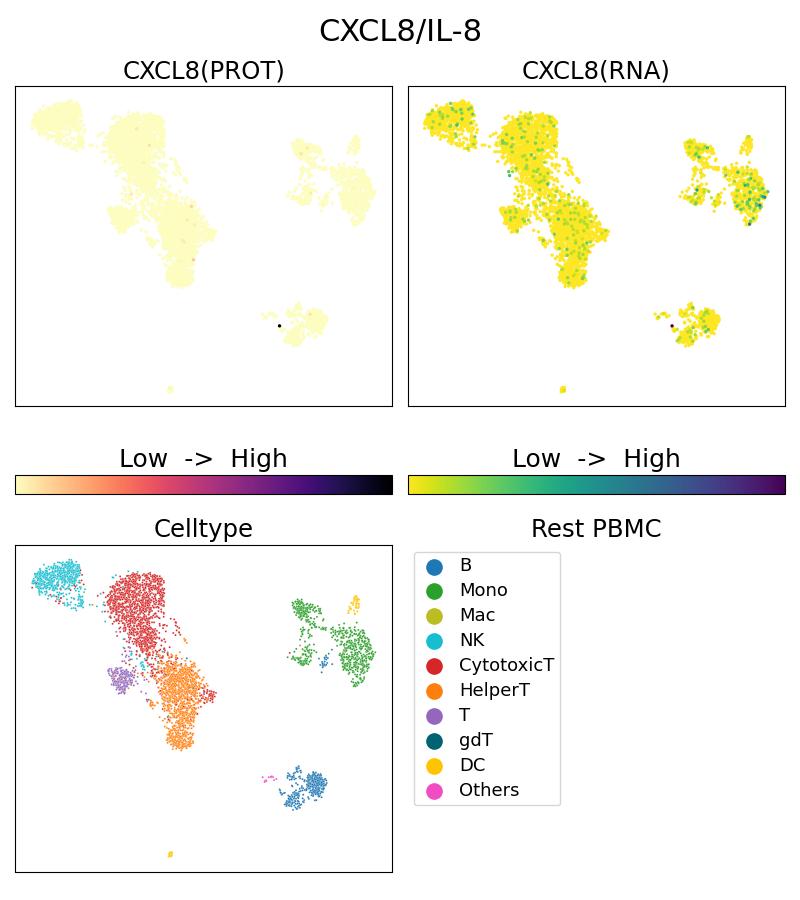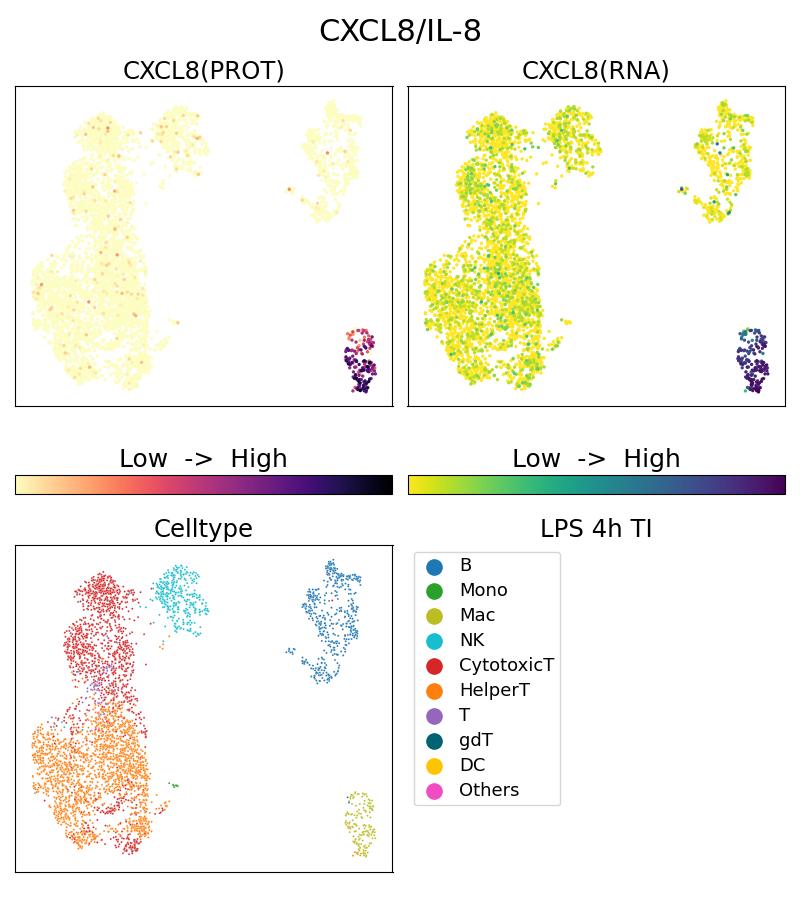Validation Data Gallery
Tested Applications
| Positive Single Cell (Intra) detected in | 10x Genomics Gene Expression Flex with Feature Barcodes and Multiplexing product. |
Recommended dilution
| Application | Dilution |
|---|---|
| SINGLE CELL (INTRA) | <0.5ug/test |
| It is recommended that this reagent should be titrated in each testing system to obtain optimal results. | |
Product Information
G17038-1-5C targets CXCL8/IL-8 in Single Cell (Intra) applications and shows reactivity with Human samples.
| Tested Reactivity | Human |
| Host / Isotype | Rabbit / IgG |
| Class | Oligo Conjugate |
| Type | Polyclonal |
| Immunogen | CXCL8/IL-8 fusion protein Ag10552 相同性解析による交差性が予測される生物種 |
| Full Name | MultiPro® 5CFLX Anti-Human CXCL8/IL-8 (Polyclonal) |
| Calculated molecular weight | 99 aa, 11 kDa |
| GenBank accession number | BC013615 |
| Gene Symbol | IL-8 |
| Gene ID (NCBI) | 3576 |
| ENSEMBL Gene ID | ENSG00000169429 |
| RRID | AB_3673891 |
| Conjugate | 5CFLX |
| Full Oligo Sequence | CGGAGATGTGTATAAGAGACAGCGAGCTGAATAATGGCCCATATAAGAAA |
| Barcode Sequence | CGAGCTGAATAATGG |
| Form | Liquid |
| UNIPROT ID | P10145 |
| Storage Buffer | PBS with 1mM EDTA and 0.09% sodium azide {{ptg:BufferTemp}}7.3 |
| Storage Conditions | 2-8°C Stable for one year after shipment. |
Background Information
Interleukin 8 (IL-8), also known as CXCL8, which is a member of the CXC chemokine family. This chemokine is secreted by a variety of cell types including monocyte/macrophages, T cells, neutrophils, fibroblasts, endothelial cells, and various tumor cell lines in response to inflammatory stimuli. IL-8 has two primary functions. It induces chemotaxis in target cells, primarily neutrophils but also other granulocytes, causing them to migrate toward the site of infection. IL-8 also induces phagocytosis once they have arrived. This gene is believed to play a role in the pathogenesis of bronchiolitis, a common respiratory tract disease caused by viral infection. IL-8 is also known to be a potent promoter of angiogenesis. IL-8 has been associated with tumor angiogenesis, metastasis, and poor prognosis in breast cancer. IL-8 may present a novel therapeutic target for estrogen driven breast carcinogenesis and tumor progression.
Protocols
| MultiPro™ Cell Surface and Intracellular Staining Protocol | Download protocol |
| 10x Genomics Cell Surface Protein Only Staining Protocol | Download protocol |

